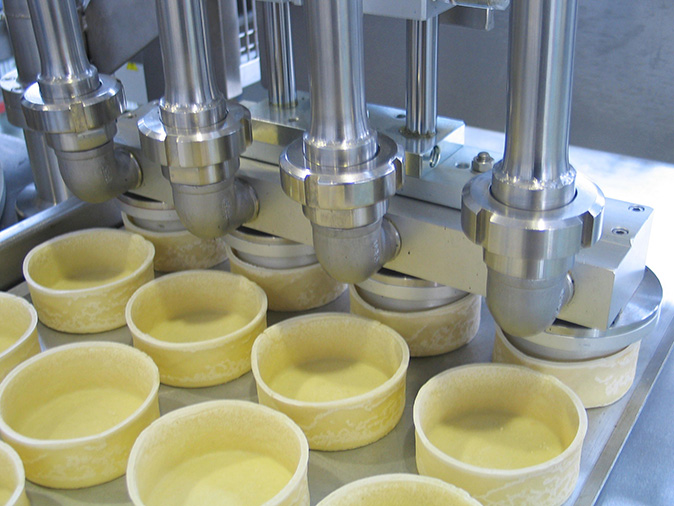UK food manufacturers grapple with inflationary impact: new report highlights industry strain

Homegrown food manufacturers have been left reeling from inflationary pressures, according to a new report.
Small and medium-sized firms in the sector scored just 30 points out of 100 in the latest Manufacturers’ Health Index, compiled quarterly by inventory software brand Unleashed.
Food ranked second from bottom in the table, ahead of office equipment and supplies.
The index is calculated from a number of key performance metrics including sales, purchasing, and internal efficiencies that impact stocking levels and lead times across 16 manufacturing categories. A score of 50 points or more indicates that a sector is performing well against these metrics.
Food’s poor performance stands in sharp contrast to the beverage category, which scored more than double with 70 points.
Jarrod Adam, head of product at Unleashed, noted how manufacturers in every industry category were hit by challenges from all directions in 2023 – including high inflation and rising borrowing costs.
“However, food producers have come under more pressure than most to keep their prices low to support struggling households – and that’s reflected in their performance and profitability,” Adam said. “Beverage producers, on the other hand, perhaps haven’t felt the same pressure. The UK is home to a wide variety of artisanal beer, wine, whisky and coffee producers, which are considered luxury items so they haven’t had to lower their prices. They may also have been able to spread the risk more successfully by selling products through a mix of restaurants and pubs, retailers and directly to consumers – unlike food producers supplying supermarkets.”
Looking ahead to the coming year, he added: “With inflation forecast to slow down in 2024, we all hope that the challenges facing food manufacturers will start to recede. Whatever happens, having full oversight of their inventory management processes will allow them to proactively respond to changes in the market, protect their margins and improve profitability.”
Dan Pope, host of the food and drinks industry podcast Hungry, adds: “Margins are being squeezed and strangled from literally every single angle for many independent food businesses due to the cost of living crisis, utilities and logistics costs soaring, and staff salaries falling in line with inflation.
“The problem is that retailers aren’t accepting cost price increases – yet they still require more trade to capture back their profits. So, supplier brands have tighter margins but they still need to spend to drive the rate of sale and retain their listings.”
Overall, the UK manufacturing industry rebounded at the end of 2023, with 11 of the 16 categories studied scoring more than 50 health points in the Manufacturers’ Health Index – contributing to the average of 77.
Top of the table were cosmetics and personal care, and industrial machinery, raw material and equipment, which both achieved a near-perfect score of 98. Office equipment and supplies was bottom of the table at just 18 points, followed by food at 30 and electronics and communication at 38.
Lead times have also more than halved from the 43 day average of 2022 to 20 at the end of 2023.
The legacy of the pandemic is still clear, with ‘just in case’ overstocking now a fixture for many businesses. In the latter part of the year, excess inventory levels grew to £141,397 compared to £119,183 for the same period in 2022. Retail and consumer-centric manufacturers appear to have a better handle of their inventory compared to heavier industries like building and construction or metal and fabrication where longer lead times are already more typical.

